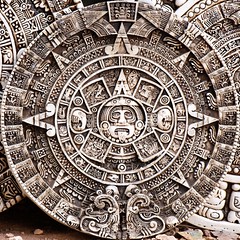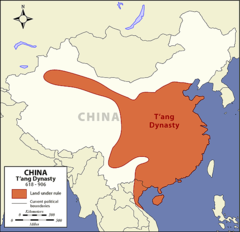| 11641234271 | After the neolithic revolution, women... | had less power(?) | | 0 |
| 11641326473 | In the classical period, both China and India... | welcomed influences from other cultures,increased trade and technology | | 1 |
| 11641370207 | A latfundia was... | a very extensive parcel of poverty
owned land specialized in argriculture destined for export | | 2 |
| 11641427244 | One difference between classical civilizations and river-valley civilizations was that in classical civilizations... | they were monotheistic and had more elaborate centralized government | | 3 |
| 11641460922 | All of the following constituted a function of government in Han China EXCEPT... | schools for peasant boys | | 4 |
| 11641485150 | Compared to China, Indian social structure... | had caste system while China had a more familial hierarchy.
both decide place and role in society and government | | 5 |
| 11641511926 | Which of the following was a Confucian belief? | - do onto other as you wish to be done to you
- do your job and be the best at it
-family is real freaking important
- proper rituals lead to harmony | | 6 |
| 11641560243 | India's political tradition during the Gupta Empire... | had lots of Emperors and religious leaders | | 7 |
| 11641576901 | Which dynasty followed the Qin? | the Hans | | 8 |
| 11641599244 | The indian caste system served to an extent as a political institution by... | reinforcing the role/job of each caste
the warriors did their thing, the rulers did their thing, the untouchables did theirs | | 9 |
| 11641686655 | If the Greek genius was politics, the Roman genius was | engineering | | 10 |
| 11641643054 | The Socratic method emphasized the importance of... | questioning/ self reflection/finding your own answer | | 11 |
| 11641701696 | The senate of the republican Rome particularly represented | landed aristocracy | | 12 |
| 11641726646 | The 1st civil war that broke out in Rome toward the end of the Republic was the result of conflict between what two groups? | Carthage and Rome | | 13 |
| 11641735150 | Hellenistic society was known for its advances in | sciences, geometry, medicine (Book of Elements, Hippocrates) | | 14 |
| 11641748385 | From a Confucian viewpoint, the roman empire might have been criticized for placing too much confidence in | laws instead of their trained officials | | 15 |
| 11641781432 | Greek poleis or city-states developed because of | Greek geography, especially mountains, which separated populations | | 16 |
| 11641791638 | What was the most significant effect of the Punic Wars | new social climate? | | 17 |
| 11641825383 | The collection of Indian poetic hymns dedicated to the various deities and describing sacred practices is ... | The Red Veda | | 18 |
| 11641803441 | The important Han innovations include... | paper,the calendar and the yoke | | 19 |
| 11641896934 | Which of following represents the philosophical viewpoint of Laozi? | Yin&Yang
balance with nature
or something like that | | 20 |
| 11641957233 | Compared to Hinduism and Buddhism, all of the following constitute distinctive features of the late roman Christianity EXCEPT.... | non-believers cant join the church | | 21 |
| 11641996781 | The Athenian empire of the fifth century B.C. grew from an alliance of city-states called the... | Greek Empire(?) | | 22 |
| 11642008823 | How did Greek and Chinese civilizations differ? | Greek depended on slaves and less centralized government | | 23 |
| 11642051028 | What groups invasion of India, beginning in the sixth century C.E.,resulting in the collapse of the Guptas Empire? | the white Hans | | 24 |
| 11642073854 | The neolithic revolution was characterized by... | development of agriculture,domestication of animals,staying in one place/ permanent communities | | 25 |
| 11642119130 | Which of the following groups made up the largest percentages of the Indian population? | commoners, peasants etc | | 26 |
| 11642149443 | what determined a person's place within the Indian social hierarchy? | their caste/ how much karma they have | | 27 |
| 11642174096 | the eastern portion of the roman empire experienced less decline than the west for all of the reasons EXCEPT... | the east resisted the spread of Christianity | | 28 |
| 11642198643 | Although greece is generally considered to be" resource poor", its economy prospered... | through assessment of foreign resources | | 29 |
| 11642211798 | the father of history in the western tradition is... | Herodotus | | 30 |
| 11642222232 | The Spartan city-state can be described as | MILITARY DOMINATED that intentionally isolated itself from economic, cultural, and political developments elsewhere in Greece | | 31 |
| 11642261082 | One irony of Athenian democracy was | The abundance of slaves which showed that the democracy appealed to a small percentage of the society. | | 32 |
| 11642273849 | The leading export commodity of China was | silk | | 33 |
| 11642293676 | which of the following is NOT considered a contributing factor in the fall of the Han Empire ? | did b/c of disease,inequality, and unrest | | 34 |
| 11642298626 | Indian Ocean society could be described as bicultural because | several communities lived and mingled(?) | | 35 |
| 11642323540 | what was the roman empires attitude toward extension of civilization? | I came, I saw, i conquered
try to influence a hella lot | | 36 |
| 11642350961 | the rationalization for the overthrow of the shang dynasty based on the principle of divine judgement was called... | mandate of heaven | | 37 |
| 11642389119 | which of the following most accurately describes the political philosophy of the Han? | conquer shit and force culture on them | | 38 |
| 11642432203 | despite major differnces, Christianity, Hinduism, and Buddhism all show... | life after death | | 39 |
| 11642406926 | which of the following statements concerning the agricultural economy of the roman empire is NOT true? | did b/c of not enough resources | | 40 |
| 11642455361 | which of the following statements concerning the rule of Asahoka is not true? | he did spread Buddhism, help[ed the economy, stopped slavery and stuff like that | | 41 |
| 11642488007 | which of the following would best fit in with the beliefs of a practicing Buddhist? | meditaion and ethical behavior
stop suffering to reach nirvana
also no caste system | | 42 |
| 11642510139 | the reincarnation of a person into a given class depend on... | karma and all that jazz | | 43 |
| 11642530302 | what was the basic structure of the roman household? | men in charge and voice everything
women make babies
slaves do work | | 44 |
| 11642547172 | which of the following is an accurate statement about the indian caste system? | based on how you did in the past life
reincarnation
karma | | 45 |
| 11642560104 | As the Zhou ability to control their vassals decreased, China entered | legalism(???) post-classical era(???) i have no idea | | 46 |
| 11642589088 | what was the status of women during the Han dynasty? | not bad, sometimes quite powerful in the household | | 47 |
| 11642600621 | the importance of the monsoon was... | fast and regular trade | | 48 |
| 11642628015 | which of the following statements accurately describes a difference between classical Chinese approach to politics and te approach of Hellenic Greece to politics? | ruled larger area
more forceful | | 49 |
| 11642649744 | which of the following accuratly reflects the relationship between greek city-states? | kinda just there, traded with them when needed, fought quite a bit but kinda just left them | | 50 |
| 11642666503 | Why are the Bantus important to African culture? | they come the closest to resembling a common cultural source in sub-Saharan Africa | | 51 |
| 11642691082 | how did the Gupta empire compare in terms of political organization to the Mauryan empire? | ruled lots of area | | 52 |
| 11642726730 | the qin emperor was committed to standardization of coinage,weights and measures, the law code, and written script. this shows a commitment to... | the creation of unified chinese civilization | | 53 |
| 11642736633 | Leading up to 1000 C.E., what was the world's most vital overland trade route? | the silk road | | 54 |




















































































